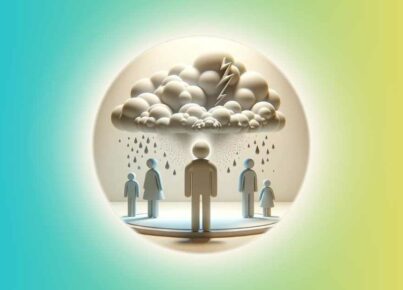When we think of mercy, some related words come to mind, such as pity, sympathy and compassion. Pity is to feel sorry for someone but not do anything about it. We look at the poor or those who are suffering and we pity them, but are unable to offer succour.
Mercy is to go a step further and lend a helping hand – we sympathise and understand others’ feelings.
Compassion is a higher consciousness that includes sympathy and concern for the suffering of others. God, it is said, has compassion for all souls.
Pity can take the form of self-pity. We may be going through difficult times and think, “No one loves me. No one cares for me. I’m so poor”, and so on. This kind of self-absorbed unhappiness over one’s own troubles does not help anyone.
Mercy can also be futile, even damaging, if it is false mercy. We may think we are being merciful by helping others, but if we do it in such a way that the other person does not progress, they will become dependent on us.
Sometimes, those who have such mercy get trapped in the problems of others.
Out of attachment or poor discernment, we may have mercy on someone who may not have the capacity to change for the better. We fail to see the long-term consequences of our actions and rush in to help. The results may not be what we intended. In fact, we may end up suffering in the process. So one needs to be careful before getting involved in helping others.
The first mercy we need to have is on the self, by looking after our own spiritual and physical well-being. This includes living by principles that will help me stay emotionally and physically healthy.
When we have mercy on others, we must watch our motives: Do I sincerely want to help the other person, or am I doing it because I have been asked to, or my role requires me to do it? If I am volunteering help, what is in my mind? Am I looking for acknowledgement, praise or some other return? Am I trying to show myself to be more merciful than others?
In a family, mercy born of attachment can cause parents to spoil their children. Where there is attachment we tend to ignore the other person’s weaknesses, and there is no effort to make the other person realise their faults and remove them. Here, what is needed is a balance of love and discipline.
Our mercy cannot be limited to those we know or like. Can I be merciful towards someone who criticises or insults me? Do I have merciful feelings for terrorists and criminals, or those who have harassed or cheated me? We tend to fear or hate such people.
These negative feelings can be transformed into a positive attitude through meditation, which helps us realise that every soul is on a unique journey, and there is a reason why people are the way they are and do the things they do. This is not condoning wrong actions, but understanding, with empathy and wisdom, how they came about. Only when we are positive towards such people can we help them live a better life.
Mercy also enables us to forgive others for their wrongs. Forgiveness is necessary to let go of the burden of an unhappy past and move on in life.
Mercy and forgiveness are not merely virtues that benefit others – they do much more good to me by freeing me from harmful thoughts and feelings, making me a truly humane being who can serve the world.
–Image by Mariel PALAZZOLO from Pixabay


